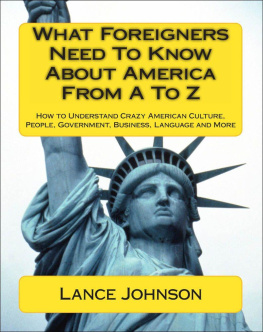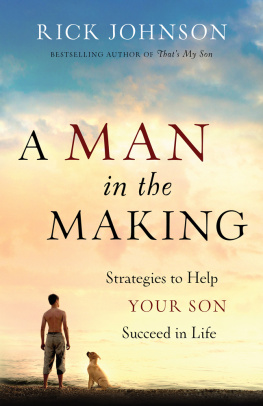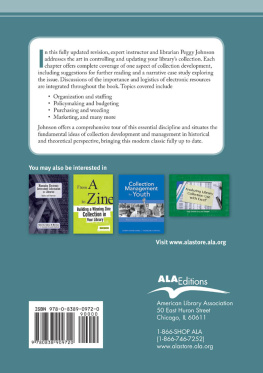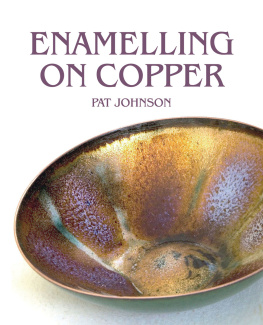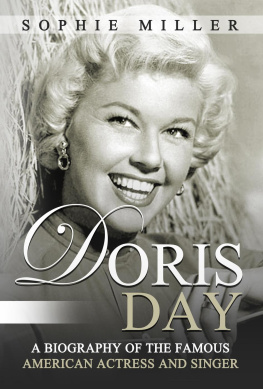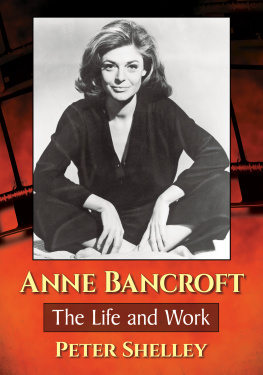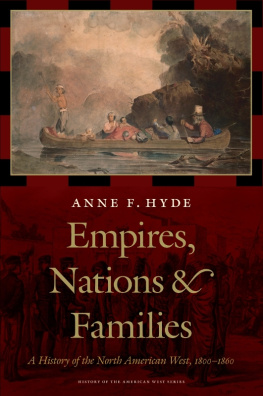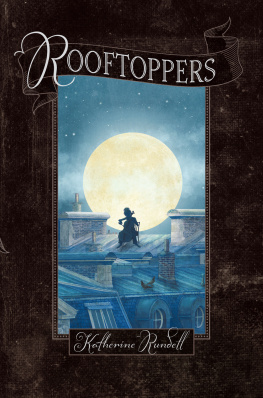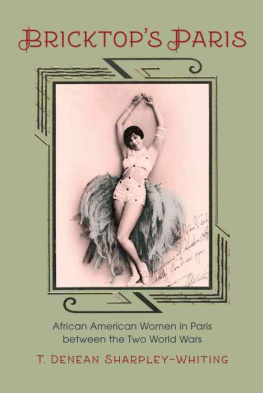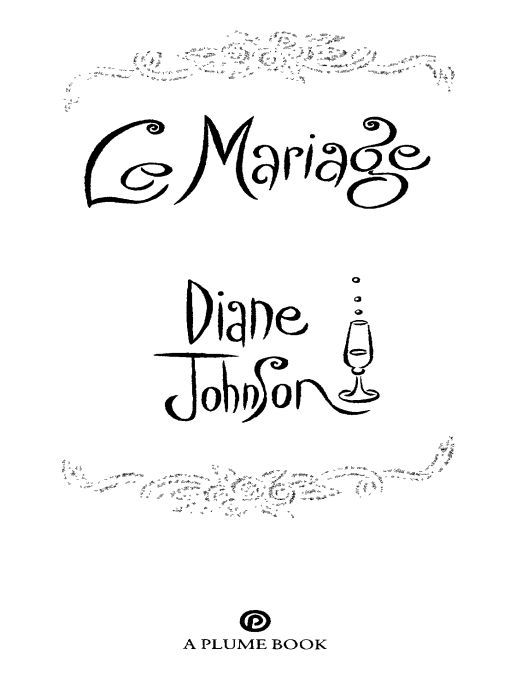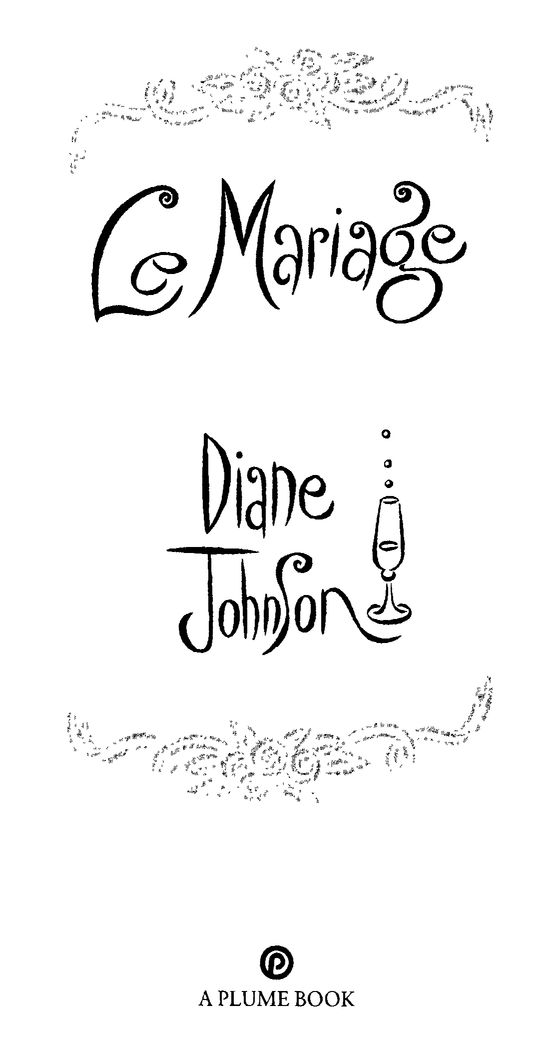Table of Contents
Acclaim forLe Manage
A subversive ... culture-clashing comedy of manners ...
A bonbon of a novel as deliciously diverting as a visit
to a French candy shop.
USA Today
A witty romp.
Elle
Supremely twisty storytelling meets bone-dry francophilic wit.
Harpers Bazaar
The literary equivalent of a spring tonic: invigorating and
uplifting, a burst of comic sunshine ... Inspired ... Johnsons
characters command our full attention ... Sophisticated drama.
-New York Daily News
Johnson [whips] love and marriage into a
frothy souffle ... delicious.
-Entertainment Weekly
Another charming comedy of manners set in the City of Light.
-The Philadelphia Inquirer
Entertaining ... Johnson takes delight in her characters.
The New York Times
Filled with sharp observations ... In classic madcap fashion, Johnson stirs many characters and strands into Le Mariage.
-New York Newsday
A witty, farcical French souffl ... You dont have to be a francophile to enjoy this clever novel.
The Arizona Daily News
Diane Johnson has 20/20 eyes for the absurd, an acute focus for
incongruent moments that spark and fizz when wildly disparate
people and cultures collide ... Delicious.
San Jose Mercury News
Plot meets panache in this intercontinental novel ... a comedic meditation on love and adultery.
The Atlanta Journal-Constitution
A delicious and delightful book ... Johnson is a serious
social critic as well as a literary one ... She writes
with charm and hilarity.
The Sunday Star-Ledger (Newark, New Jersey)
Johnson juggles a clever plot and complex characters with both
wit and soul ... A sophisticated adventure and a sparkling
comedy of manners.
New York Post
Johnson is a beguiling writer and a master storyteller ...
Le Mariage is a near-perfect novel.
Salon.com
Johnsons characters are flawed, and all the more human for that, as they jostle for their share of affection in an imperfect world ... [She] once again opens a window on the world of American expatriates in Paris.
The Washington Times
Rendered with a wicked wit ... Hilarious.
The Seattle Times
With piercing insight and urbane humor, Johnson explores
the enigma of Gallic life through the baffled eyes
of Americans abroad.
Nylon
With Le Mariage, Johnson lays claim to the legacy of Henry James.
amazon.com
Delightful... [Imbued with] a contemporary satirical wit ... Thrown into the entertaining mix is Johnsons perceptive and witty insights on love, marriage, and Anglo-French relations.
-Library Journal
ALSO BY DIANE JOHNSON
FICTION
Le Divorce
Health and Happiness
Persian Nights
Lying Low
The Shadow Knows
Burning
Loving Hands at Home
Fair Game
NONFICTION
Natural Opium
Terrorists and Novelists
Dashiell Hammett
Lesser Lives
To the memory of Alice Adams and William Abrahams
What the artist calls good, the object of all his playful pains, his life-and-death jesting, is nothing less than a parable of the right and the good, a representation of all human striving after perfection.
Thomas Mann, Homage to Kafka
Clara
It was widely agreed among the other Americans in Paris that Clara Holly had the ideal life here, and people also agreed that if her good fortune had distanced her slightly from the normal lot of Americans, even from human beings generally, it hadnt made a monster of her as often seems to happen to women in her categorybeautiful, rich, well married, far from her Oregon beginnings. Sometimes women in this category, married to Europeans, are seen to acquire unplaceable mid-Atlantic accents and a certain amnesia about being American except for eight weeks spent on Marthas Vineyard every summer.
And sometimes fortunate people can come to feel that they have earned their good fortune, remarked the princess Sternholz, nee Dorothy Minor from Cincinnati, of Clara, though she liked her.
Clara Holly remembered her roots, yet would rather not, and almost never went back to the U.S. When in Paris she belonged very much to the American world that exists like a specialized form in a complex ecosystem, dependent on its hosts but apart from them, extending mossily from the Marais to Neuilly, the stodgy suburb to the northwest, and into the delightful countryside between Saint-Cloud and Versaillesso Marie Antoinette in its pretension to wildness, nature, and simplicity.
Clara and her husband Serge Cray, the renowned if now somewhat reclusive director, live out there, near the village of Etang-la-Reine, in a chteau of exceptional beauty that had once briefly belonged to Madame du Barry. This was a decrepit structure that had somehow escaped the notice of the ministry of such things, fallen into further decay, briefly become a bed-and-breakfast, and been bought by a newly rich Russian who sold its boiseries and chemines-its panelling and fireplaces. After Serge Cray bought it, he directed the refurbishment, using studio carpenters and props from his costume film Queen Caroline, and Clara had thrown herself into restoring the gardens, going into Paris only a couple of times a week to shop or see an art show or go to a party.
Clara was always planning to go back to Oregonher widowed mother lived in Lake Oswego, to whom she spoke almost dailybut somehow she didnt go more, than every year or two. This was partly because of Cray, who could not go to America because of some income tax matter, a running battle with the IRS that did not quite warrant extradition.
Cray had some view that she would be held hostage. The idea of her going always threw him into one of his fits of gloom. He was Polish to his boots, though after the age of twelve he had been raised in Chicago. It wasnt so much her absence he would mindthey got lost in their rooms and corridors and saw little of each otherit was that America could attach a piece of his property: Clara.
Whether it could or couldnt, Clara respected his fears. They tallied with her own, which over the years had grown exaggerated from reading American newspaper accounts of violence, handguns, road accidents, and crime.
Now thirty-two, Clara had been married for a dozen years, but hadnt acted since that first film, when she met Serge, and when she gained a little bit of cult fame for a daring dance scene. In truth, her dancing had not been as memorable as her nubile beauty, just out of her teens, black curls and a voluptuousness that was close to plumpness. She became thinner with marriage and motherhood. Lars, their eleven-year-old son, was at school in England, to Claras distress and over her objections, it being Crays view that English education was superior to French for a boy with Larss handicap. Mrs. Holly, Larss ailing grandmother, agreed it was a shame to send a child so young off without his mother, and in her opinion Clara wasnt happy; but the husband was overbearing, as these film people are. Mrs. Holly would say all this to her caregiver Cristal. Theres nine hours time difference between here and France, Mrs. Holly would always add, it being so odd to think of Clara all the way on the other side of the world where it was dark when the sun shone in Oregon.


